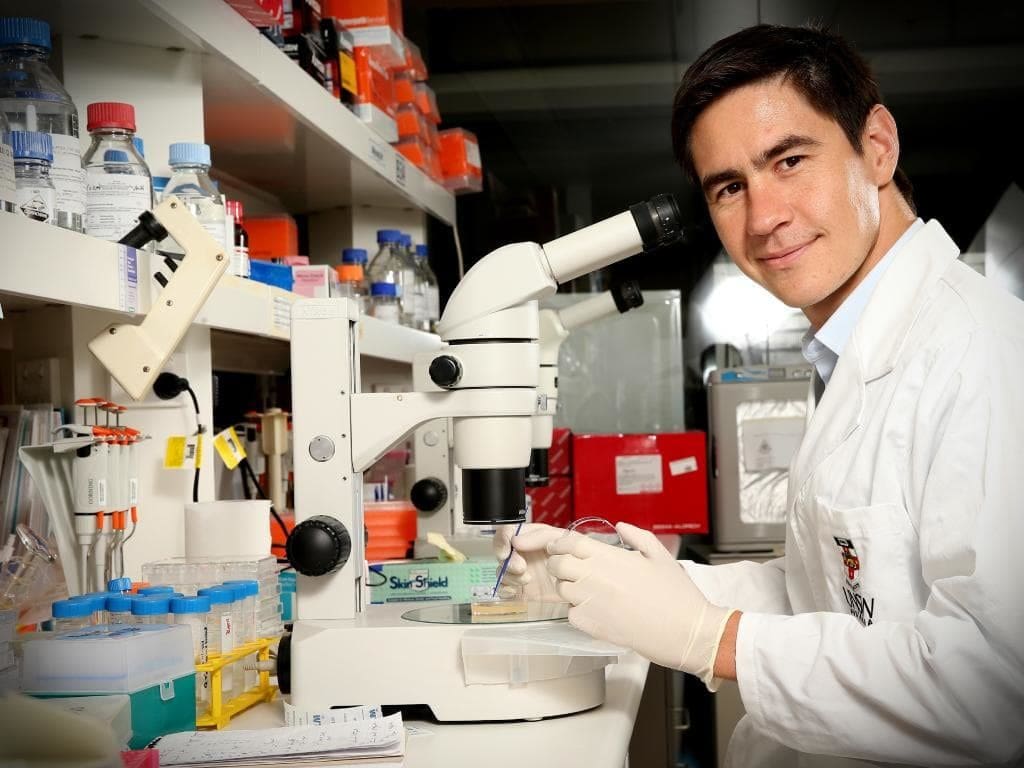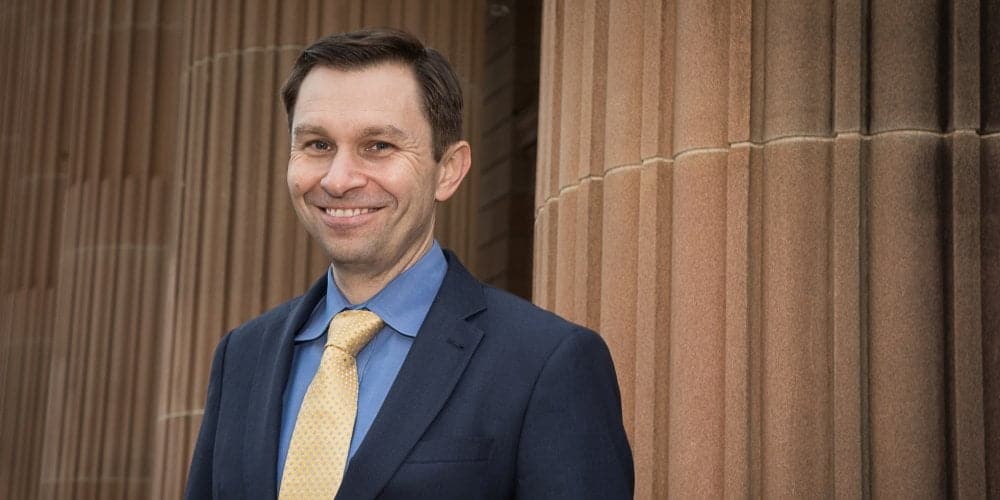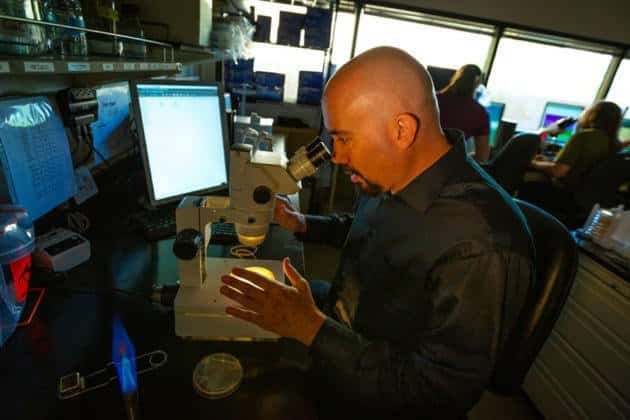When in the speculations on the future the discourse on the longevism you can never help but open the most obvious debate in history, the one on life span.
We will soon reach 150 years, and in the medium term over 200. The technological singularity could surprise us and cancel death as a natural fact, downgrading it to chronic disorder and practically giving us the opportunity to live forever. And U.S?
The prospect of living forever exalts many people, but terrifies many. What weight can we currently give to this aspiration as to this fear?
4 real experts and scientists answer us and a humble popularizer pulls the strings (er, er, that would be me).
Alice Parker

Professor of Electrical and Computer Engineering at the University of Southern California. His research focuses, among other things, on brain retroengineering to understand how it works.
Mind Uploading? Forget it.
Will you be able to upload your brain to a Could to keep it forever? Probably not. The tangle of neurons is so complex, the connections, the methods of communication from one neuron to another change even in the same individual.
It is a great system, which is currently far beyond our understanding, and even the same gesture, the same path varies slightly each time. Every time you recover an old memory, you basically rewrite it in a slightly different way. A Babel, indeed: a Babel interconnected with the surrounding environment, which renews its tangle of languages minute by minute.
Our current technology doesn't even have a chance to interpret it, and neither does it Nanotechnology which we will develop shortly. We are no where near understanding what's in our heads.
But, if…
If we understand the biochemistry of the brain and can "download" everything it contains, not only the visible interactions but also the chemical substrate that allows them, perhaps it will be possible to preserve a "snapshot" of it. Perhaps it will be possible to predict with a margin of approximation how it will evolve.
Having said that, it is true that understanding is still greater every day. We grow in very small steps, but we grow. Neuroscience is giving us unexpected progress, and if we manage to do something similar to mind uploading we will mainly owe it to them. If anything, it will be possible to capture aspects of a personality and replicate the dynamics of an individual by digitizing an avatar. I imagine that one day we will be able to talk to a digital version of our deceased relatives, animated by a cocktail of personal and artificial intelligence. But it won't be them. It will be a part, probably a small one, of them. And without them, without conscience. I also want to live forever, but if we aim for this type of technology the outcome is what I said.
What happens in the body, in the bloodstream, in proteins and hormones affects the brain, it is unimaginable to think of being able to put a brain or its equivalent in a "box" of any kind in the near future. Maybe within 40 or 50 years we will have something that resembles a brain, but not a real person with its nuances and its peculiar differences from all the others.
Either way, it's worth exploring. When I grew up in the 60's space was “the final frontier”. Today the frontier is within us, it is our brain.
Alice Parker
Lindsay Wu

Senior Research Fellow and Co-Director of the Aging Research Laboratory at the University of New South Wales, Sydney
Do you want to know how to live forever? You won't be able to live forever. Death is inevitable. Accept it and you will be surprised to live a better life, the best possible.
If you want it to be long, very long, your chance lies in limiting calories and in particular proteins. Moderate and regular exercise, regular sleep, mental activity made up of curiosity and intellectual stimuli, and a good number of social contacts. End.
Today there are entire branches of science committed to finding genetic, pharmaceutical, technological methods to provide more health even in old age, but they are all methods that mimic the list above.
Lindsay Wu
David Sinclair

Professor of Genetics and co-director of the Paul F. Glenn Center for the Biology of Aging at Harvard Medical School. His research aims to understand how aging occurs, and how the process can be slowed down.
Our best chance of living forever is cellular reprogramming. A sort of button to reset the body's age whenever necessary. This mechanism would probably involve a combination of genes that allow cells to become pluripotent again, the so-called "Yamanaka factors".
More and more confirmations are arriving from my laboratory and from others around the world on the influence of these factors. They are able to reverse the path of aging and rejuvenate skin, eyes, kidneys and other complex tissues.
We have so many possibilities
We can genetically engineer ourselves to respond to a drug like doxycycline, and effectively reset the body's age, say, every 10 years.
It will be possible to rejuvenate organs and tissues, but also to regenerate them when they are missing. Our species will live as long as whales or turtles, or even longer. And reaching 300, even 400 years from our perspective, is just like living forever.
Other technologies will complete the work by giving us the possibility of cleaning our body from senescent cells. We will induce the benefits of diet and exercise without the need to diet and exercise, with molecules such as mTOR inhibitors, also called rapalogs, or potentiating the NAD. We will be able to obtain 'spare parts' such as organs by 3D printing them.
In a few centuries of technological optimization, a combination of stimulating molecules, cell reprogramming, cell cleaning and organ replacement will allow us to live thousands of years, or even more.
Longevism makes progress, but moves faster in thoughts than in actions. We are currently at a similar stage to that of the Wright Brothers in 1903, we dream. We know it's possible. We know that there are probably no biological or physical laws that will prevent us from doing so. The only thing is to understand when we will leave the ground.
David Sinclair
Mark McCormick

Assistant professor of Biochemistry and Molecular Biology at the University of New Mexico
Well, living forever is really a long, long time. I suspect that people would like to live much longer than now, and a disease free time. How long? I can't say. In any case, a number of years that today would be able to astound.
It already happened
Germ colonies are essentially immortal, and carry DNA exactly like our cells, which are considered deadly. In nature we already know some species that can reverse cellular processes by jumping back and forth in the aging process up to 15 times, thanks to changes in their genes that we are trying to understand. In the laboratory our researchers were able to extend the lifespan of some animals up to 10 times as much.
In this context we fail to realize how often the results obtained in the laboratory on simple models then work exactly the same way in humans. It happens many times. There is a long list of Nobel Prizes, patents and blockbuster drugs that clearly shows this cadence.
The risk is getting lost in the thought that these changes will not affect us, but will benefit our children or grandchildren. As boring as it is to repeat it, I say that taking care of yourself with diet and exercise also greatly improves your chances of being there when these changes occur. The exciting thing is that tests around the world could change the cards on the table at any time.
I love to remind my students that Thomas Edison, Lord Kelvin, and other experts considered it impossible that anything heavier than air could fly. And they did it just a few years before the Wright Brothers flew. However, I think it is a safe bet, we will easily win by betting that future people will have a longer and healthier life than today.
Mark McCormick

